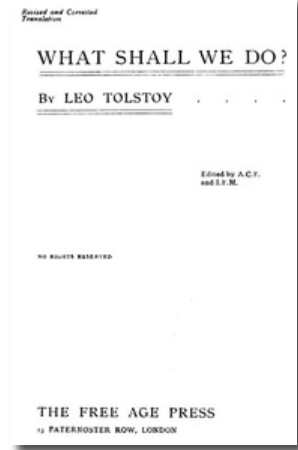|
admin 2025-4-27 19:59:55

What Shall We Do?★★★★
8
Tolstoy, Leo, graf,・・Ended
Updated: 1886年
Content length: 00
language:
Source: Project Gutenberg
8
Score
5★
8%
4★
25%
3★
33%
2★
8%
1★
25%
Synopsis
"What Shall We Do?" by Leo Tolstoy is a reflective essay written in the late 19th century. The work explores the profound social injustices faced by the impoverished in Moscow, as the author grapples with the moral implications of wealth and the plight of those in dire need. It critiques the societal structures that perpetuate suffering and highlights the inherent responsibility of individuals to act against these wrongs. The opening portion of the book describes Tolstoy's arrival in Moscow and his shock at the abject poverty surrounding him. He encounters beggars who navigate the streets in unique and desperate ways, symbolizing the complex social hierarchies and the often-unseen struggles of urban life. As he observes the homeless and destitute, Tolstoy reflects on the law prohibiting begging and the apparent indifference of society toward such suffering. He documents his observations with empathy, detailing encounters with and the stories of destitute individuals who scrape by in a city that is rich in resources but poor in compassion. This sets the stage for a deeper exploration of the connection between wealth, moral duty, and societal change as the narrative unfolds.
| |
收录书单